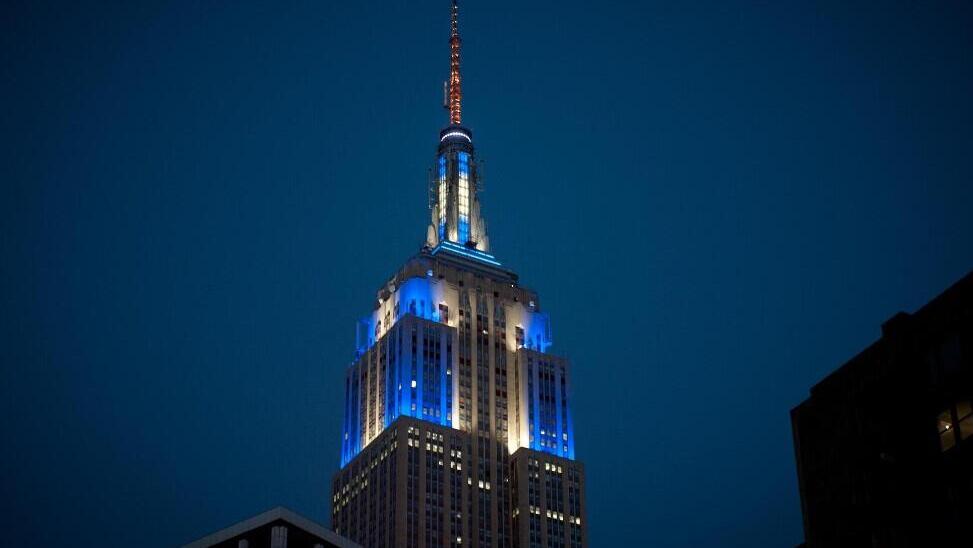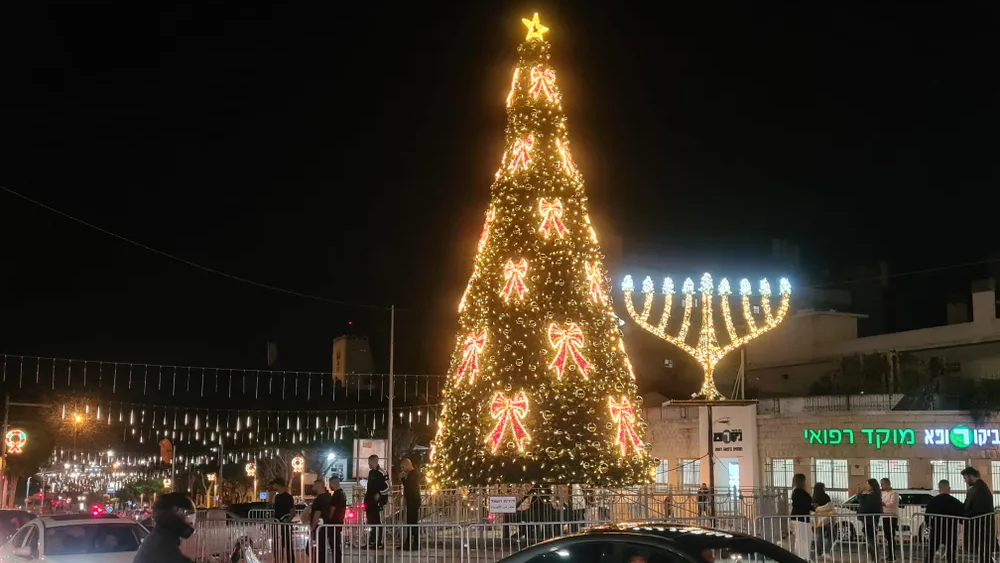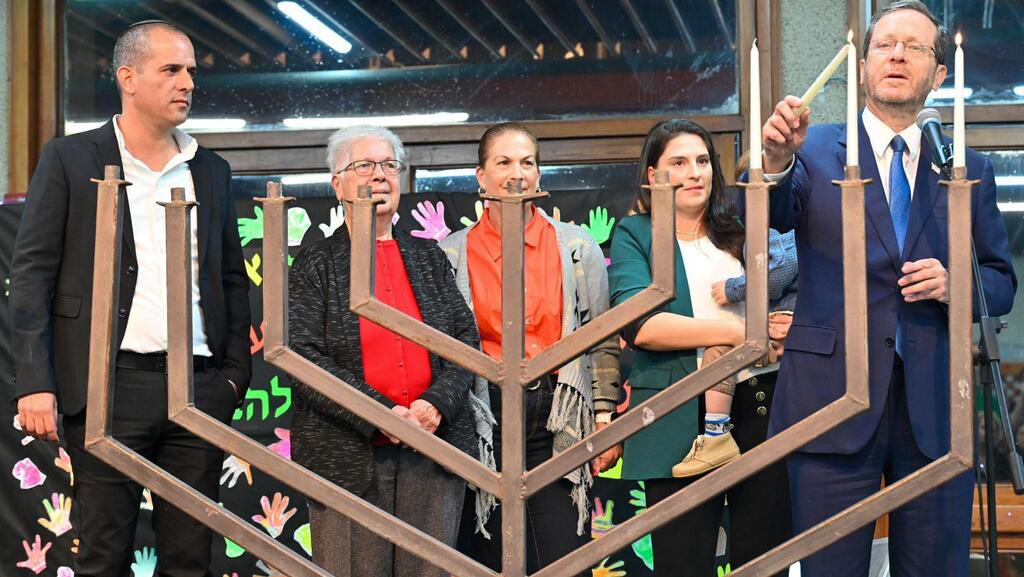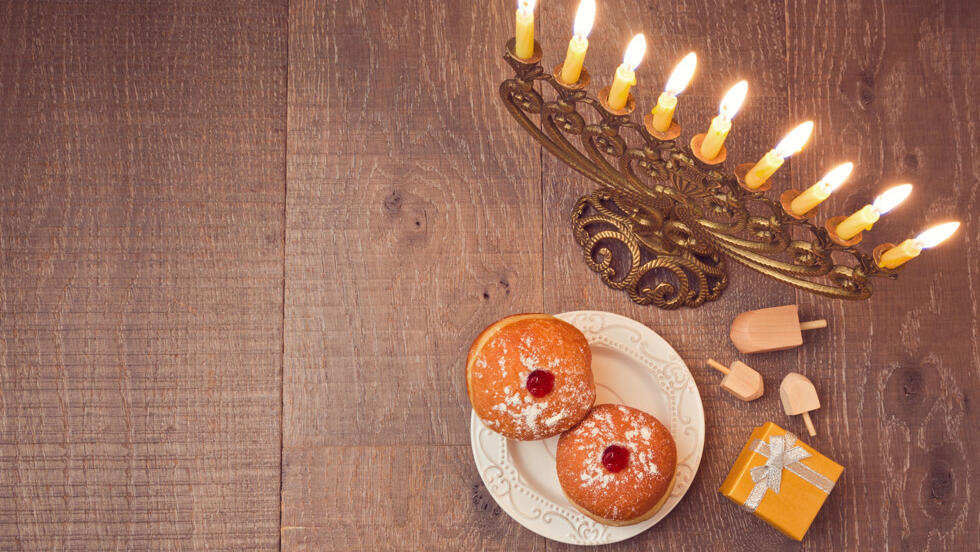Getting your Trinity Audio player ready...
Hanukkah is without a doubt the holiday Israelis favor the most as some 95% of Jews light candles on at least one of the eight days of the Festival of Light.
This is pretty much a no-brainer, considering it's the most secular of all Jewish holidays, it doesn't shut down the economy and it spreads a cozy holiday spirit in the peak of winter.
Hanukkah has also grown to be a symbol of cultural mishmash.
In the renowned Jewish story, the Greek villains wanted to wipe out the Jewish culture. Hence, for generations, the moral of the story of Hanukkah was the triumph of the Jewish spirit, of the minority culture in their fight against the imperialist rulers who sought to dismantle it.
With time, Hanukkah, like other holidays, has evolved and birthed many different narratives and variations: The Zionist angle views Hanukkah as a secular holiday; The religious interpret Hanukkiah as the light that exists in every spirit of the Jewish nation; The Americans talk about the freedom of religion; The Maghreb traditions devote it to the heroism of women.
4 View gallery


The Empire State Building is illuminated with blue and white lights in celebration of Hanukkah, an annual New York City tradition
(Photo: JTA)
While not all the narratives align, this cultural abundance should be seen as a gift to our nation - as evidence of a culture with a heartbeat.
However, this rich cultural spectrum has also highlighted our nation's rifts, which are becoming more prominent, showing glimpses of an ugly cultural war spurred on by politicians.
As we speak, there are plans underway to establish a "Jewish National Identity Administration," which is supposed to appoint representatives to every governmental ministry to fight post-modernism and the prevalence of Western culture in Israeli society.
Political parties are bickering among themselves regarding who is more Jewish, causing the secular sector to perceive itself as a minority, subject to alienation from the Jewish culture. Suddenly, the Christmas tree, a global and inclusive symbol, is becoming more and more tempting.
4 View gallery


A Christmas tree next to a Hanukkah candlestick in Haifa, Israel, during the Hag HaHagim festival
(Photo: Jérémie Elfassy)
Hanukkah is just the right time to evaluate the layers of the Jewish culture with a laid-back and non-defensive attitude. Christmas trees are not a threat to the hanukkiah (Hanukkah menorah) — kindergartens will keep throwing Hanukkah parties, and sufganiyot (Hanukkah doughnut) will remain a national symbol of festivity.
We live in a reality where it's completely normal to light Hanukkah candles during the halftime of a World Cup final. We must use this great power we have to discuss the potential of our culture in a democratic Jewish state.
By definition, Judaism has many cultural variations. Nevertheless, every sector and every community can all fall under the same category and belong to the same story, if only we let ourselves be allies. No Jew should be regarded as a guest in this nation or a second-class citizen.
When a certain group takes ownership of the Jewish story, coerces its narrative, or disparages those who dare offer a different angle — a feeling of exclusion, rage, and rebellion washes over the people.
4 View gallery


Isaac Herzog lights Hanukkah candles with residents of Kibbutz Yad Mordechai
(Photo: GPO)
What these groups are doing would not be approved by the Maccabees — rather the contrary. This behavior is similar to that of the Greek villains — it attempts to enforce its customs from the top down.
While the agents of culture may be strong ideologists, the reality is such that it doesn't allow for a unanimous ideology to flourish. The reality is a versatile one, it's one that acts as a meeting point and not a separation wall.
Only through freedom to become intimately acquainted with our traditions, can a sustainable Jewish culture thrive.


